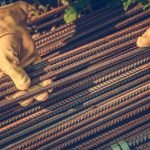Your HVAC equipment is the workhorse of your home throughout the year, providing warm and cool air as needed. Depending on where you live, you might experience extreme temperature changes and rely heavily on your heater and air conditioner. As a result, you’ll want to ensure that your system is working properly and that you are getting maximum airflow at all times.
If you’ve been experiencing weak airflow from your HVAC vents, there are a few things you can do to try and fix the issue. Issues ranging from dirty air filters to blocked ductwork could cause weak air flow from vents in the house. With some investigation, you might be able to solve the problem yourself. Let’s take a look at some common causes of weak airflow from your vents.
Vent and Duct Obstructions
.1).jpg)
There can be various reasons why airflow from vents in the house is weak. One common cause is a build-up of dirt and dust in the vents and ducts. It is estimated that over the course of a normal year, several pounds of dirt, dust, pollen, and other debris can accumulate inside your ductwork. Not only can this buildup cause problems with your indoor air quality, but it can also hinder the airflow and reduce the efficiency of your heating or cooling system. Cleaning the vents and ducts can help to restore normal airflow and improve the performance of your system. You can have your ducts cleaned regularly as a part of your annual HVAC maintenance.
In addition to dirt and dust, occasionally, other obstructions can also cause problems in your ducts. Depending on the location of your ductwork, a possible tear or opening could allow things such as leaves, insects, or even animals into your system. The warm moist environment can attract birds and small rodents to build nests inside your ductwork. If this is the case, you may notice reduced airflow as a result. If you’re unable to identify and clear any obstructions yourself, it’s best to call in a professional to take a look. They’ll be able to identify the source of the problem and take the necessary steps to fix it.
Damaged Ductwork
Damaged ductwork can decrease airflow and cause your HVAC system to work harder than necessary, costing you more money in the long run. If you notice a decrease in airflow, it is important to inspect your ductwork for any damage and make the necessary repairs. Damaged ducts can be caused by several things, including rodents, insects, wear and tear, or even accidental homeowner damage.
When ducts are damaged, air can leak out of holes, rips, tears, or gaps in the ductwork. As a result, the air is flowing out of the ductwork instead of into your home and affecting the performance of your HVAC system. Annual HVAC maintenance and inspection will ensure that your ducts are providing the maximum amount of airflow possible. If you find any damage, have it repaired as soon as possible to restore airflow and improve the performance of your HVAC system.
Dirty Air Filters.

Perhaps one of the most common causes of weak airflow is clogged or dirty air filters. Your air filters help to catch and trap dirt, dust, pet dander, pollen, and other allergens and prevent these particles from circulating in your home. Over time, your filters will become dirty or clogged if they aren’t changed regularly. If the filters are clogged, the airflow will be restricted, which will impact the temperature in your home and the performance of your HVAC unit. It is recommended that you change out your filters at least every three months. Depending on the location and size of your home and the number of people and pets in your home, you may need to change your filters more frequently.
If you’ve investigated these common issues and the airflow is still weak, it may be time to call a professional to inspect your HVAC unit. There may be a problem with the unit that requires professional attention.















